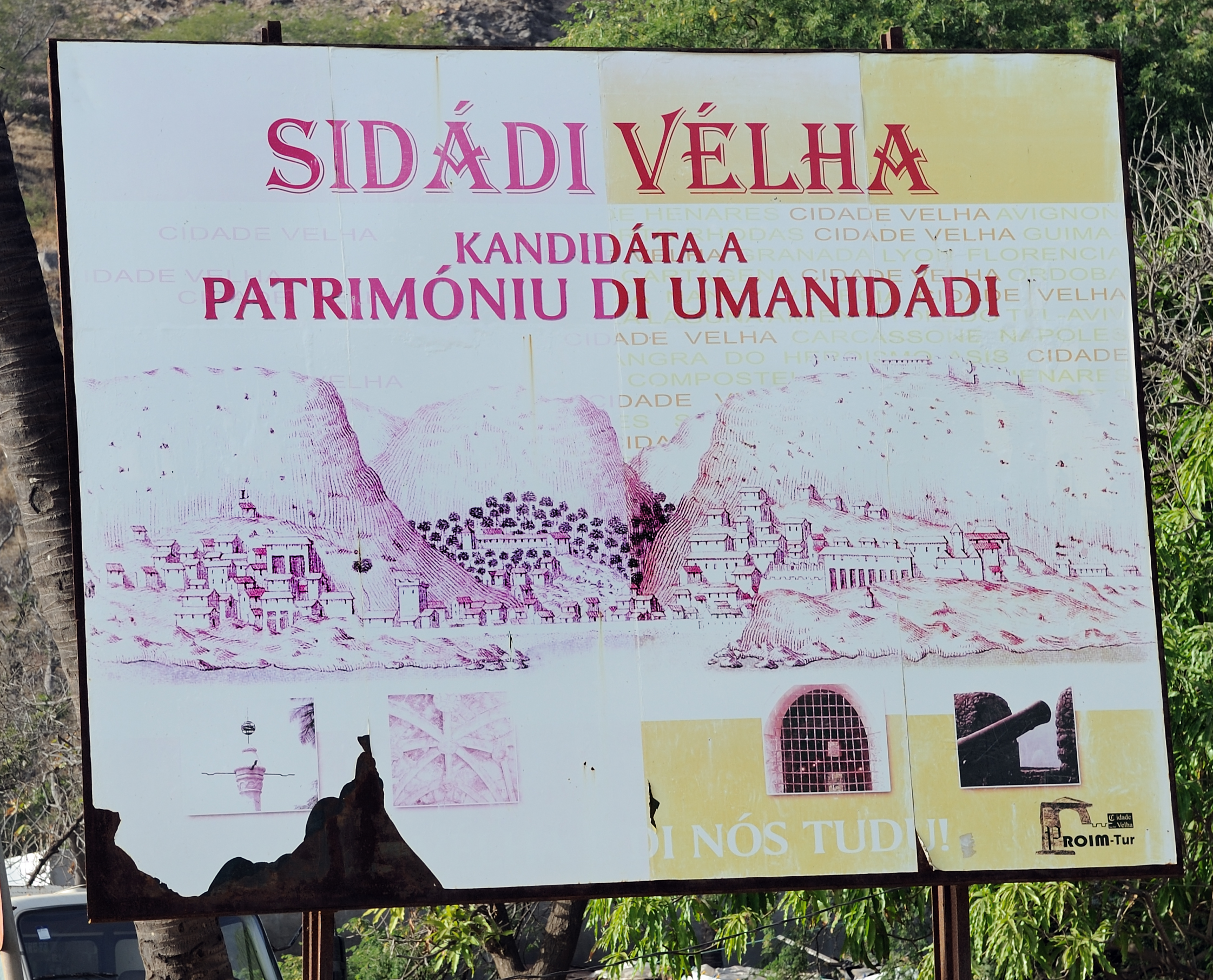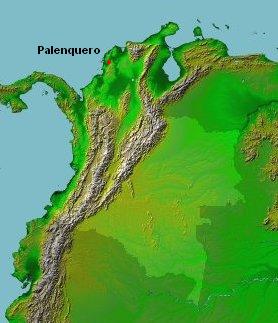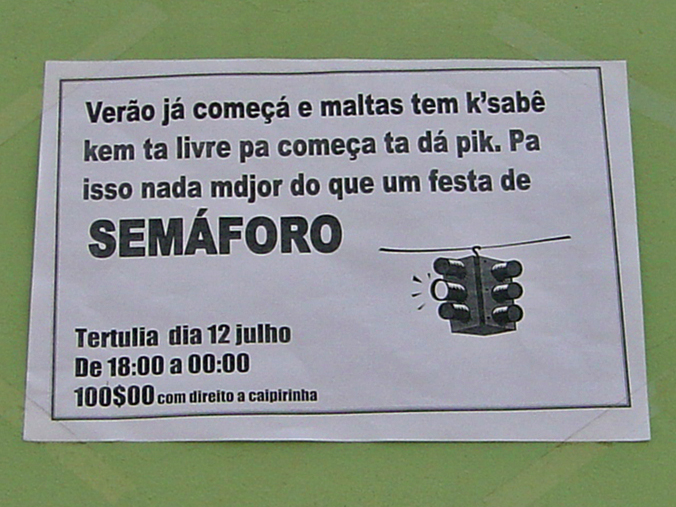|
Papiamento
Papiamento () or Papiamentu (; nl, Papiaments) is a Portuguese-based creole language spoken in the Dutch Caribbean. It is the most widely spoken language on the Caribbean ABC islands (Aruba, Bonaire, Curaçao), with official status in Aruba and Curaçao. Papiamento is also a recognised language in the Dutch public bodies of Sint-Eustatius and Saba.Papiamento can be used in relations with the Dutch government. The language, spelled in Aruba and in Bonaire and Curaçao, is largely based on colonial-era Portuguese and Spanish (including Judaeo-Portuguese), and has been influenced considerably by Dutch and Venezuelan Spanish. Due to lexical similarities between Spanish and Portuguese, it is difficult to pinpoint the exact origin of some words. Though there are different theories about its origins, most linguists now believe that Papiamento emerged from the Spanish and Portuguese creole languages that developed in the West African coasts, as it has many similarities with ... [...More Info...] [...Related Items...] OR: [Wikipedia] [Google] [Baidu] |
Papiamento Orthography
Papiamento has two standardised orthographies, one used on the island of Aruba and the other on the islands of Curaçao and Bonaire. The Aruban orthography is more etymological in nature, while the other is more phonemic. Among the differences between the two standards, one obvious difference is the way the name of the language is written. In Aruba it is written ''Papiamento'', while in Curaçao and Bonaire it is written ''Papiamentu''. The governments of Curaçao and Aruba formally standardised orthographic rules in 1976 and 1977, respectively. History Development The first efforts to formalise the language began in the early 1970s, with the first step made in 1969 in Curaçao. R.G. Römer presented to the Central Government of the Netherlands Antilles his (''Draft of a spelling for Papyamento''). In 1970 the Maduro Commission consisting of eight members, R.G. Römer included, was formed. With a modified proposition, they presented their recommendations to the Minister of E ... [...More Info...] [...Related Items...] OR: [Wikipedia] [Google] [Baidu] |
Aruba
Aruba ( , , ), officially the Country of Aruba ( nl, Land Aruba; pap, Pais Aruba) is a constituent country of the Kingdom of the Netherlands physically located in the mid-south of the Caribbean Sea, about north of the Venezuela peninsula of Paraguaná Peninsula, Paraguaná and northwest of Curaçao. It measures long from its northwestern to its southeastern end and across at its widest point. Together with Bonaire and Curaçao, Aruba forms a group referred to as the ABC islands (Leeward Antilles), ABC islands. Collectively, these and the other three Dutch substantial islands in the Caribbean are often called the Dutch Caribbean, of which Aruba has about one-third of the population. In 1986, it became a Kingdom of the Netherlands#Constituent countries, constituent country within the Kingdom of the Netherlands, and acquired the formal name the Country of Aruba. Aruba is one of the four countries that form the Kingdom of the Netherlands, along with the Netherlands, Curaçao, ... [...More Info...] [...Related Items...] OR: [Wikipedia] [Google] [Baidu] |
Bonaire
Bonaire (; , ; pap, Boneiru, , almost pronounced ) is a Dutch island in the Leeward Antilles in the Caribbean Sea. Its capital is the port of Kralendijk, on the west ( leeward) coast of the island. Aruba, Bonaire and Curaçao form the ABC islands, 80 km (50 miles) off the coast of Venezuela. Unlike much of the Caribbean region, the ABC islands lie outside Hurricane Alley. The islands have an arid climate that attracts visitors seeking warm, sunny weather all year round. Bonaire is a popular snorkeling and scuba diving destination because of its multiple shore diving sites and easy access to the island's fringing reefs. As of 1 January 2019, the island's population totaled 20,104 permanent residents, an increase of about 1,200 since 2015. The island's total land area is ; it is long from north to south, and ranges from wide from east to west. A short west of Bonaire across the sea is the uninhabited islet Klein Bonaire with a total land area of . Klein Bonaire has ... [...More Info...] [...Related Items...] OR: [Wikipedia] [Google] [Baidu] |
Portuguese-based Creole Languages
Portuguese creoles are creole languages which have Portuguese as their substantial lexifier. The most widely-spoken creoles influenced by Portuguese are Cape Verdean Creole, Guinea-Bissau Creole and Papiamento. Origins Portuguese overseas exploration in the 15th and 16th centuries led to the establishment of a Portuguese Empire with trading posts, forts and colonies in Africa, Asia and the Americas. Contact between the Portuguese language and native languages gave rise to many Portuguese-based pidgins, used as linguas francas throughout the Portuguese sphere of influence. In time, many of these pidgins were nativized, becoming new stable creole languages. As is the rule in most creoles, the lexicon of these languages can be traced to the parent languages, usually with predominance of Portuguese; These creoles are (or were) spoken mostly by communities of descendants of Portuguese, natives, and sometimes other peoples from the Portuguese colonial empire. Until recently ... [...More Info...] [...Related Items...] OR: [Wikipedia] [Google] [Baidu] |
Portuguese Creole
Portuguese creoles are creole languages which have Portuguese as their substantial lexifier. The most widely-spoken creoles influenced by Portuguese are Cape Verdean Creole, Guinea-Bissau Creole and Papiamento. Origins Portuguese overseas exploration in the 15th and 16th centuries led to the establishment of a Portuguese Empire with trading posts, forts and colonies in Africa, Asia and the Americas. Contact between the Portuguese language and native languages gave rise to many Portuguese-based pidgins, used as linguas francas throughout the Portuguese sphere of influence. In time, many of these pidgins were nativized, becoming new stable creole languages. As is the rule in most creoles, the lexicon of these languages can be traced to the parent languages, usually with predominance of Portuguese; These creoles are (or were) spoken mostly by communities of descendants of Portuguese, natives, and sometimes other peoples from the Portuguese colonial empire. Until recently ... [...More Info...] [...Related Items...] OR: [Wikipedia] [Google] [Baidu] |
Spanish-based Creole Languages
A Spanish creole, or Spanish-based creole language, is a creole language (contact language with native speakers) for which Spanish serves as its substantial '' lexifier''. A number of creole languages are influenced to varying degrees by the Spanish language, including the Philippine creole varieties known as Chavacano, Palenquero, and Bozal Spanish. Spanish also influenced other creole languages like Papiamento, Pichinglis, and Annobonese. Any number of Spanish-based pidgins have arisen due to contact between Spanish and other languages, especially in America, such as the used by the Panare people of Venezuela and Roquetas Pidgin Spanish used by agricultural workers in Spain. However, few Spanish pidgins ever creolized. Spanish creole languages Chavacano Chavacano (also Chabacano) is a group of Spanish-based creole language varieties spoken in the Philippines that emerged during the 18th century following the colonization of the Spaniards in the Philippines. While C ... [...More Info...] [...Related Items...] OR: [Wikipedia] [Google] [Baidu] |
Curaçao
Curaçao ( ; ; pap, Kòrsou, ), officially the Country of Curaçao ( nl, Land Curaçao; pap, Pais Kòrsou), is a Lesser Antilles island country in the southern Caribbean Sea and the Dutch Caribbean region, about north of the Venezuela coast. It is a constituent country of the Kingdom of the Netherlands. Together with Aruba and Bonaire, it forms the ABC islands. Collectively, Curaçao, Aruba, and other Dutch islands in the Caribbean are often called the Dutch Caribbean. Curaçao was formerly part of the Curaçao and Dependencies colony from 1815 to 1954 and later the Netherlands Antilles from 1954 to 2010, as Island Territory of Curaçao ( nl, Eilandgebied Curaçao, links=no, pap, Teritorio Insular di Kòrsou, links=no), and is now formally called the Country of Curaçao. It includes the main island of Curaçao and the much smaller, uninhabited island of Klein Curaçao ("Little Curaçao"). Curaçao has a population of 158,665 (January 2019 est.), with an area of ; its ... [...More Info...] [...Related Items...] OR: [Wikipedia] [Google] [Baidu] |
Dutch Language
Dutch ( ) is a West Germanic language spoken by about 25 million people as a first language and 5 million as a second language. It is the third most widely spoken Germanic language, after its close relatives German and English. '' Afrikaans'' is a separate but somewhat mutually intelligible daughter languageAfrikaans is a daughter language of Dutch; see , , , , , . Afrikaans was historically called Cape Dutch; see , , , , , . Afrikaans is rooted in 17th-century dialects of Dutch; see , , , . Afrikaans is variously described as a creole, a partially creolised language, or a deviant variety of Dutch; see . spoken, to some degree, by at least 16 million people, mainly in South Africa and Namibia, evolving from the Cape Dutch dialects of Southern Africa. The dialects used in Belgium (including Flemish) and in Suriname, meanwhile, are all guided by the Dutch Language Union. In Europe, most of the population of the Netherlands (where it is the only official language spoken co ... [...More Info...] [...Related Items...] OR: [Wikipedia] [Google] [Baidu] |
Iberian Romance Languages
The Iberian Romance, Ibero-Romance or sometimes Iberian languagesIberian languages is also used as a more inclusive term for all languages spoken on the Iberian Peninsula, which in antiquity included the non-Indo-European Iberian language. are a group of Romance languages that developed on the Iberian Peninsula, an area consisting primarily of Spain, Portugal, Gibraltar, Andorra and southern France. They are today more commonly separated into West Iberian and Occitano-Romance language groups. Evolved from the Vulgar Latin of Iberia, the most widely spoken Iberian Romance languages are Spanish, Portuguese, Catalan-Valencian-Balear, and Galician. These languages also have their own regional and local varieties. Based on mutual intelligibility, Dalby counts seven "outer" languages, or language groups: Galician-Portuguese, Spanish, Asturleonese, "Wider"- Aragonese, "Wider"-Catalan, Provençal+Lengadocian, and "Wider"- Gascon. In addition to those languages, there are a numb ... [...More Info...] [...Related Items...] OR: [Wikipedia] [Google] [Baidu] |
Cape Verdean Creole
Cape Verdean Creole is a Portuguese-based creole language spoken on the islands of Cape Verde. It is also called or by its native speakers. It is the native creole language of virtually all Cape Verdeans and is used as a second language by the Cape Verdean diaspora. The creole has particular importance for creolistics studies since it is the oldest living creole. It is the most widely spoken Portuguese-based creole language. Name The formal designation of this creole is Cape Verdean Creole, but in everyday usage the creole is simply called ('Creole') by its speakers. The names Cape Verdean ( in Portuguese, in Cape Verdean Creole) and Cape Verdean language ( in Portuguese, in the Sotavento dialect of Cape Verdean Creole and in the Barlavento dialect) have been proposed for whenever the creole will be standardized. Origins The history of Cape Verdean Creole is hard to trace due to a lack of written documentation and to ostracism during the Portuguese administrati ... [...More Info...] [...Related Items...] OR: [Wikipedia] [Google] [Baidu] |
Venezuelan Spanish
Venezuelan Spanish ( or ) refers to the Spanish spoken in Venezuela. Spanish was introduced in Venezuela by colonists. Most of them were from Galicia, Basque Country, Andalusia, or the Canary Islands. The last has been the most fundamental influence on modern Venezuelan Spanish, and Canarian and Venezuelan accents may even be indistinguishable to other Spanish-speakers. Italian and Portuguese immigrants from the late 19th and the early 20th century have also had an influence; they influenced vocabulary and its accent, given its slight sing-songy intonation, like Rioplatense Spanish. German settlers also left an influence when Venezuela was contracted as a concession by the King of Spain to the German Welser banking family ( Klein-Venedig, 1528–1546). The Spaniards additionally brought African slaves, which is the origin of expressions such as ("excellent"), which comes from Yoruba . Other non-Romance words came from indigenous languages, such as (a type of coffee ... [...More Info...] [...Related Items...] OR: [Wikipedia] [Google] [Baidu] |
Comparison Of Portuguese And Spanish
Portuguese and Spanish, although closely related Romance languages, differ in many aspects of their phonology, grammar and lexicon. Both belong to a subset of the Romance languages known as West Iberian Romance, which also includes several other languages or dialects with fewer speakers, all of which are mutually intelligible to some degree. A 1949 study by Italian-American linguist Mario Pei, analyzing the degree of difference from a language's parent (Latin, in the case of Romance languages) by comparing phonology, inflection, syntax, vocabulary, and intonation, indicated the following percentages (the higher the percentage, the greater the distance from Latin): In the case of Spanish it was 20%, the third closest Romance language to Latin, only behind Sardinian (8% distance) and Italian (12% distance). Portuguese was 31%, making it the second furthest language from Latin after French (44% distance). The most obvious differences are in pronunciation. Mutual intelligibili ... [...More Info...] [...Related Items...] OR: [Wikipedia] [Google] [Baidu] |




